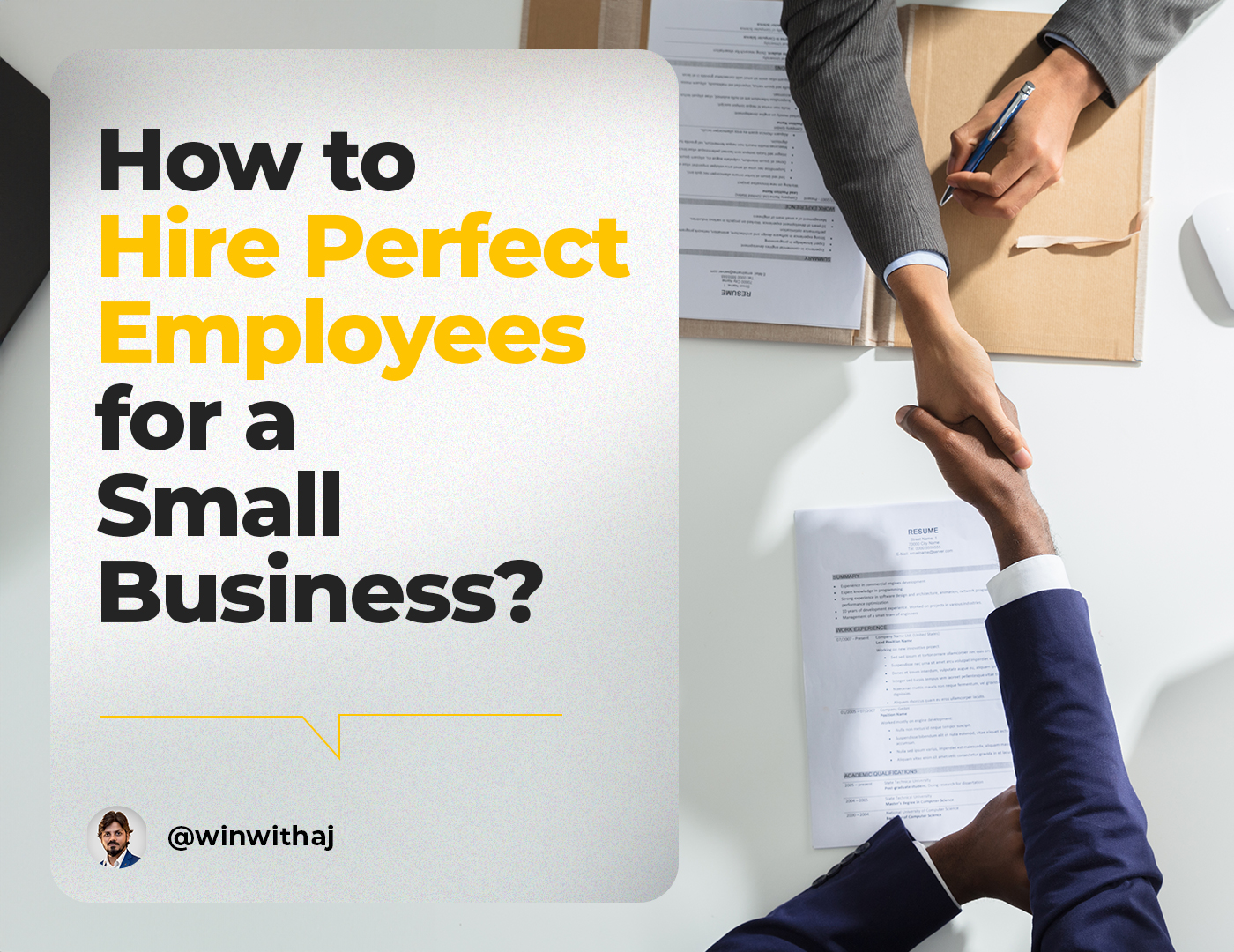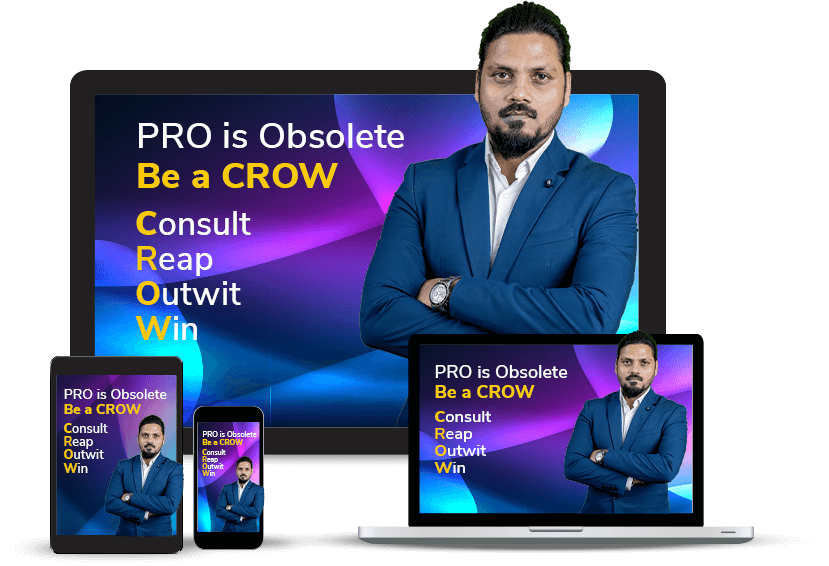
How to Hire Perfect Employees for a Small Business?
Are you a small business owner juggling multiple roles, from marketing to accounting, and now adding HR to your list? Are you feeling overwhelmed by the challenge of finding the right people to hire for your team? The process of hiring the right team members is vital to your business’s success, but how can you navigate this without a dedicated HR team?
This guide will not only make the hiring process more manageable, but also help you unlock the potential of your business by finding the perfect additions to your team.
Understanding What You Need
Before you start hiring, get clear on what your business needs. This means figuring out which roles you need to fill and the skills required for those positions. Here’s how to get started:
-
Identify the Gaps
Take a look at your current team and see what’s missing. Are there tasks that need more attention or skills that you lack? Think about whether you need someone for customer service, social media management, or financial oversight.
-
Write Clear Job Descriptions
Once you know what you need, create detailed job descriptions. Be specific about the responsibilities, skills, and qualifications needed. A clear job description helps attract the right candidates and sets clear expectations from the beginning.
-
Set Your Budget
Decide how much you can pay for each role. Look at industry standards for salaries and factor in additional costs like benefits, taxes, and training.
Finding the Right People
With your needs outlined, it’s time to find potential candidates. Here are some effective ways to do that:
-
Use Your Network
Reach out to friends, family, and colleagues to let them know you’re hiring. Networking events and industry meetups can also be great places to find qualified candidates.
-
Post on Job Websites
Post your job openings on well-known job sites such as Indeed, LinkedIn, and Glassdoor. These platforms provide access to a wide pool of job seekers. Be sure to include important keywords in your job listings to enhance their visibility.
-
Share on Social Media
Announce your job openings on your business’s social media profiles. Encourage your followers to share the posts with their networks to help spread the word.
-
Connect with Local Schools
Partner with local universities and colleges to find recent graduates looking for job opportunities. Attend career fairs and advertise your openings on campus job boards.
-
Consider a Recruitment Agency
If you’re having trouble finding the right candidates, think about hiring a recruitment agency. They can help you find qualified candidates more efficiently.
Screening and Interviewing Candidates
Once you’ve got a list of potential candidates, it’s time to screen and interview them. This step helps you find out who is the best fit for the job and your company’s culture.
-
Review Resumes and Cover Letters
Start by looking at resumes and cover letters to spot candidates who meet the basic qualifications. Pay attention to relevant experience, skills, and achievements.
-
Conduct Phone Screenings
Use phone screenings to narrow down your list. Ask about their experience, availability, and salary expectations to see if they’re a good fit for a face-to-face interview.
-
Prepare for In-Person Interviews
Plan your interview questions in advance. Focus on assessing their skills, experience, and how well they fit with your company culture. Behavioral questions can help you understand how they’ve handled situations in the past.
-
Assess Cultural Fit
In addition to skills, it’s crucial to consider cultural fit. Seek candidates who align with your company’s values and will integrate smoothly with your current team. Ask about their work style, personal values, and approach to resolving conflicts.
-
Use Skills Tests
For some roles, skills tests can be useful. These could include writing samples, coding tasks, or other relevant exercises.
Making the Job Offer
After interviews, it’s time to make an offer. Here’s how to do it effectively:
-
Choose the Best Candidate
Compare your top candidates based on their skills, experience, and how well they fit with your company culture. Pick the one that best meets your needs and aligns with your business values.
-
Draft a Job Offer Letter
Your offer letter should include details like the job title, salary, benefits, start date, and any other important information. Be clear and concise to avoid misunderstandings.
-
Be Open to Negotiation
Be ready for the candidate to negotiate the offer. Evaluate their requests thoughtfully and be willing to make adjustments when feasible. Strive to reach a mutually beneficial agreement.
-
Set a Start Date
Once the offer is accepted, agree on a start date. This gives you time to prepare for their arrival and ensures a smooth onboarding process.
Onboarding Your New Hire
A good onboarding process helps your new employee get settled and start contributing effectively.
-
Prepare Their Workspace
Get their workspace ready before their first day. This includes setting up their desk, computer, and any necessary supplies. A prepared environment makes a great first impression.
-
Introduce Them to the Team
Introduce the new employee to your team on their first day. This helps them feel welcome and start building relationships. Consider a team lunch or casual meeting to ease them in.
-
Provide Training and Resources
Offer thorough training and resources to help them get up to speed. This might include a company handbook, training materials, and access to necessary tools. Assign a mentor or buddy to help them during their first weeks.
-
Set Clear Expectations
Clearly communicate job responsibilities, performance goals, and company policies from the start. Frequent check-ins can help address any questions or concerns.
-
Encourage Feedback
Ask for feedback on their onboarding experience. This shows you value their input and helps you improve the process for future hires.
Keeping Your Employees Happy
Hiring the right people is just the beginning. To ensure they stay and thrive, focus on keeping them engaged and satisfied.
-
Create a Positive Work Environment
Foster a workplace where employees feel valued and respected. Encourage open communication and teamwork. Recognize and celebrate their achievements to boost morale.
-
Offer Competitive Pay and Benefits
Make sure your compensation and benefits packages are competitive. Regularly review salaries and offer benefits like health insurance, retirement plans, and professional development opportunities.
-
Offer Career Development
Provide opportunities for advancement through training, mentorship, and new challenges. Employees are more likely to remain with a company that supports their professional growth.
-
Support Work-Life Balance
Encourage a healthy work-life balance by offering flexible schedules, remote work options, and sufficient time off. Promote regular breaks and emphasize the importance of employee well-being.
-
Act on Feedback
Regularly seek and act on feedback from your employees. Use surveys, meetings, and one-on-one discussions to gather their thoughts and improve the work environment.
Hiring for a small business may seem overwhelming, but with the right approach, it can be a rewarding experience. By understanding your needs, finding the right candidates, conducting thorough interviews, and providing strong onboarding, you can build a team that helps your business grow.
Remember, the goal is to find people who not only have the right skills but also fit well with your company culture. With a dedicated and motivated team, your small business can achieve great things. Happy hiring!
If you’re still unsure about how to boost your business, book my Discovery Call today to find out if it needs a revamp or just some proven tricks.



















